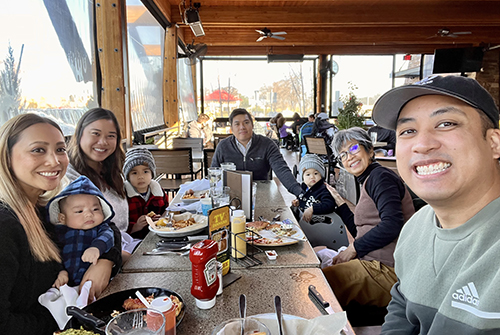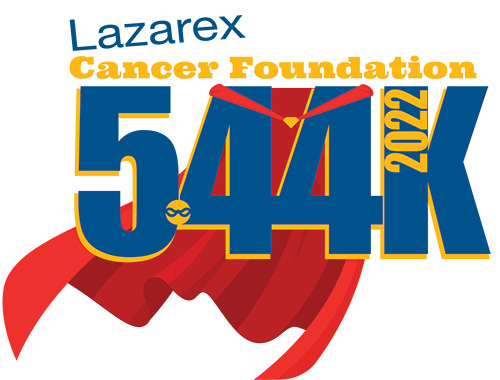Nora has spoken recently about her current clinical trial treatments at her local San Francisco Bay Area Myeloma support group. She hopes that she can help others who are also apprehensive – like she once was. She also recognizes the disparities that can exist within the medical system. “As a person of color, I have to work extra hard to articulate my voice and be heard. In the past, I felt dismissed at times. Now I feel like I can claim my voice, speak up with respect, and have a place at the table which my medical team welcomes openly.”
Nora has always been an active person. Originally from the Philippines, she journeyed the world, often solo. Her travels helped balance the work-life pressures from her job as an Executive Assistant, managing ambitious executives in Silicon Valley.
But globetrotting caught up with Nora’s persistent knee pain when she recognized the pain was becoming too much to manage. Her doctor ran various tests, including tests for autoimmune diseases. One marker showed up abnormal. It was time to see an oncologist.
“I didn’t even know what an oncologist was,” said Nora. “The doctor said the results showed I have Multiple Myeloma. I was in shock; I even threw up.” Once tasked with organizing high-tech executives, Nora now had to manage her own health.
She eventually turned to the University of California San Francisco (UCSF) and found a specialist who is a great listener. “He involves me in the treatment decision process based on my needs and limitations. . As a person of color, and going to appointments alone, I find it hard at times to articulate myself–let alone in a medical setting. .”
While her doctors continued to monitor her condition, her treatment didn’t start until 2013. She did all of her treatments on her lunch breaks. No one knew Nora had Multiple Myeloma. “How do I share this with work colleagues?” Nora thought. “I didn’t look sick at all.”

But her two adult sons, Chris and Jason, and a number of very close friends knew from the beginning. Their collective love and support helped Nora persevere. She had to. She wanted to be there for her grandchildren, now ages 4, 2, and 7 months. “After treatments, constipation and diarrhea were hard to manage, especially at work. But I had no other big side effects.”
By 2020, the treatments had little impact, so she opted for a stem cell transplant. It stopped the progression for nine months, then relapsed. She knew she was running out of options. Her doctor suggested a clinical trial.
Now retired, Nora had time for a twice-weekly regimen requiring her to stay within a 30-minute drive radius. “How was I going to be able to go every week? I am grateful for a friend who offered me a condo in San Francisco, but travel arrangements still had to be made.” Lyft prices were costing her over $1000 per month–money she didn’t have to spend.
Nora put her faith in the trial coordinator, who introduced her to Lazarex Cancer Foundation. “Lazarex granted me funds for travel to get treatments, the cost of which was enormous. Without financial stress to deal with, I have more strength and emotional space to face all my treatments, and to be more articulate. ”
Nora’s clinical trial started in July of 2021. She continues to get bi-weekly treatments. “I was nervous about the trial because I had no knowledge of it. After starting the trial, I realized that my fear was not real. I have been responding very well to all my treatments. Goodness can come out of a clinical trial.”
Nora has spoken recently about her current clinical trial treatments at her local San Francisco Bay Area Myeloma support group. She hopes that she could help others who are also apprehensive – like she once was. She also recognizes the disparities that can exist within the medical system. “As a person of color, I have to work extra hard to articulate my voice and be heard. In the past, I felt dismissed at times. Now I feel like I can claim my voice, speak up with respect, and have a place at the table which my medical team welcomes openly.”
“I am eternally grateful for the help from Lazarex. My numbers are actually great. My little body is responding well to treatments, and I am in a place where I am remain grateful to my specialist, medical team, family, friends, clinical trial and Lazarex!”




